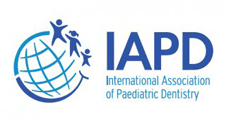May 18th, 2022

The third molars have long been known as your “wisdom teeth,” because they are the last teeth to erupt from the gums – usually sometime during the late teens to early twenties. This is a time in life that many consider an “age of wisdom”; hence the term, “wisdom teeth.”
Extracting the third molars does not have any effect on your actual wisdom … and Dr. Dinah Abioro and our staff are sorry to say that holding on to them can’t make you smarter, either. So if you somehow feel that you became wiser and smarter when your wisdom teeth appeared, chalk it up to age rather than teeth.
In fact, you may just be showing how smart you are by having your wisdom teeth removed. Mankind once relied on the wisdom teeth to replace teeth that were damaged or missing, thanks to a poor diet. But dietary changes and advances in modern dentistry make it possible for many people to hold on to their teeth for many decades, which eliminated the need for third molars.
For many people, wisdom teeth cause nothing but problems: becoming impacted, irritating surrounding gum tissue, or even causing other teeth to become crooked or overlap. By removing them, patients often enjoy a lower risk of decay, infection, and aesthetic complications.
So rest assured that extracting your wisdom teeth will have no effect on your immediate or long-term intelligence.
May 4th, 2022

"Motherhood: All love begins and ends there." - Robert Browning
We would like to take this moment to thank all the great moms out there for being so great during their child’s visits to Dental Land Pediatrics. Whether it’s driving their kids to regularly scheduled appointments or for “being there” while their child is treatment, the moms who come to our office are all stellar individuals, so Dr. Dinah Abioro and our entire staff would like you to know that we appreciate you all!
Happy Mother’s Day and enjoy your special day!
April 27th, 2022

Creating good dental hygiene habits early in your child’s life is essential to the health of his or her teeth, even when your infant doesn’t have any. By starting now, you can set the foundation for your son or daughter’s oral health later on in life.
When do I start?
The best time to begin brushing your baby’s teeth is before that first tooth ever comes in. Wipe your little one’s gums gently with a soft washcloth soaked in warm water every day. Not only will this help to get rid of bacteria in the mouth, but it will also familiarize your child with a daily brushing routine.
What do I use?
When your child’s teeth begin to emerge, it’s time to switch to a baby toothbrush. Select one with a big grip for your hand and a small head that’s easy to maneuver in your baby’s mouth.
Your little one won’t need toothpaste until he or she is about a year old; and even then, only a small amount is necessary. Apply an amount the size of a grain of rice and move to a pea-sized amount when your infant is about two years old.
By around six years, your child will probably rinse and spit without your help. At this time, you may introduce a child-friendly fluoride mouthwash.
How do I do it?
Until about age five or six, it’s likely your child will still need your help with brushing teeth. Gently scrub over all the teeth and gums, even where teeth have yet to come in. It may be helpful to explain what you are doing and how you are doing it, so your toddler can learn to brush her or his teeth alone.
Paired with regular visits with Dr. Dinah Abioro at our Bowie office, proper hygiene habits instilled in your child early on will set up a good foundation for a healthy mouth in the future.
April 20th, 2022

Earth Day began in 1970 as an event to raise awareness of our environment. What began as a single day in April is now recognized around the world to bring attention and education to global environmental issues. Conserving our natural resources, reducing water and air pollution, and developing green technologies are all ways in which we can improve the environment around us.
Reduce, Recycle, and Reuse
One of the easiest ways to participate in Earth Day is by simply reducing the amount of refuse that ends up in landfills. Many communities have recycling programs for paper, plastic, and metal refuse. By keeping recyclable items out of landfills, we reduce the need for new disposal space and the amount of energy needed for burning refuse. Recycling products also helps conserve the resources that are used in making new products.
You can save money by reducing your consumption of many everyday products. Single disposable water bottles can be recycled but they are costly. By using filtered faucet water, you can conserve your financial resources. Disposable paper towels can also be wasteful. Consider reusable cleaning rags for the majority of your chores.
Reusing items saves both the environment and your finances. A large number of products can be re-purposed to create a new item. Old furniture can be remade into a new piece. Old clothing can be used for craft items. If you are not able to find ways to reuse your old items, donate them to a charity. Remember to continue your positive environmental steps on a daily basis.
Other things you can do to improve the environment
Everyone, young or old, can find ways to participate in improving the environment. Some ideas include:
- Planting trees
- Picking up litter
- Reducing energy consumption
- Walking, bicycling, or carpooling to work or school
- Disposing of hazardous waste properly
- Using rain barrels to conserve water for plants
Earth Day is designed to appreciate and celebrate the health of the earth. Keeping the earth healthy is important, but keeping your mouth healthy is important, too. Healthy teeth and gums contribute to your overall health and well-being, so remember to call our team at Dental Land Pediatrics to schedule an appointment. Have a happy and healthy Earth Day, from Dr. Dinah Abioro!









